By Zara Esufally
Good mental health has long been defined as an absence of mental illness. In the recent past, however, the World Health Organisation (WHO) has provided a more holistic definition of good mental health:
“Mental health is not just the absence of mental disorders. A state of well-being in which the individual realises his or her own abilities, can cope with the normal stresses of life, can work productively and fruitfully, and is able to make a contribution to his or her community.”
To gauge the Sri Lankans’ understanding of what good mental health is, Kalyana conducted a primary research from a sample of 444 individuals across the major cities. While 75% of respondents’ from the survey were in line with the definition from the WHO, 16% of participants held the belief that good mental health is simply ‘being happy or peaceful all the time, and an additional 5% believe it to be the absence of mental health disorders.’ The combined latter statistic of 21% is likely to be a concerning reflection of a section of the country that our web survey did not reach. “Being Happy” or “Being Peaceful” all the time should not be the benchmark for our overall mental wellbeing, but rather the positive side-effects of a healthy mind.
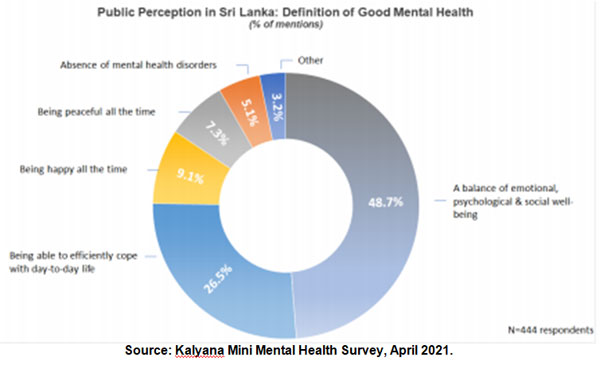
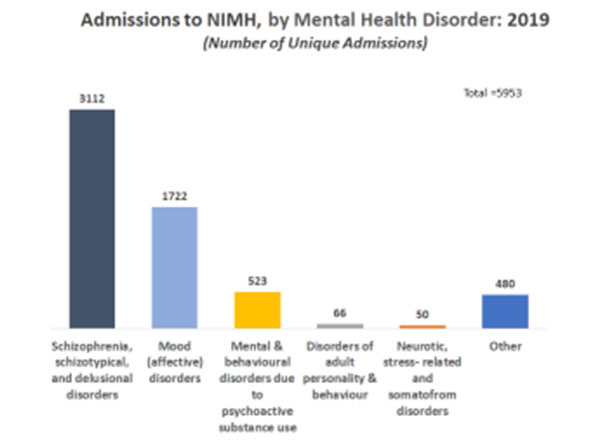
Source: National Institute of Mental Health in Sri Lanka, Annual Report, 2019
A disturbing statistic that has received a lot of publicity in recent years is that Sri Lanka is home to one of the highest suicide rates in the world. Data pertaining to suicide rates from 2015 to 2019 found a decrease from 14.7 per 100,000 population from 2015 to 12.9 in 2019. In the period under review, the suicide rate for men was 20.9, as opposed to 6.1 for women. Interestingly, up until 2019 Sri Lankan suicide rates were consistently higher than India’s despite a much smaller population size, and were more on par with those of Japan as is evident in the chart below.
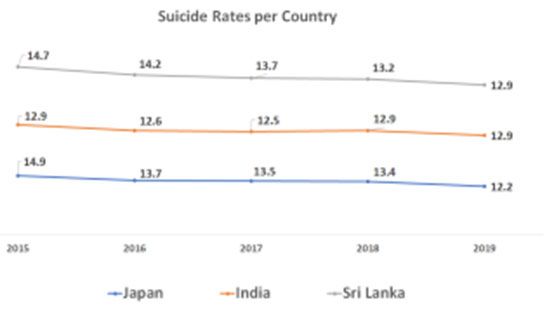
Source: Global Health Observatory data repository, WHO.
From Kalyana’s own field research, 22% of respondents stated they struggled with suicidal ideation or having attempted suicide at some point in their lives. These disturbing findings highlight that a large percentage of individuals who are suffering with their mental health are doing so in silence, and not receiving the care and help they need to cope with their mental health and prevent it from escalating to a critical stage. Therefore, it is vital that as a society we place importance on encouraging open conversations on the topic of mental health to eliminate stigma and reassure those who are struggling that they are not alone, and that there is hope for their recovery.
Perhaps the most concerning finding from our online survey is when questioned, “what worries you the most about talking to someone about your mental health problems?”, just over two-thirds of respondents said they didn’t want to burden the other person and just under a third stated they were afraid of being misunderstood. These attitudes stem from a lack of awareness on the subject of mental well-being as well as the fear of bringing shame to oneself and family members, which continues to be one of the biggest barriers to seeking mental health care in Sri Lanka.
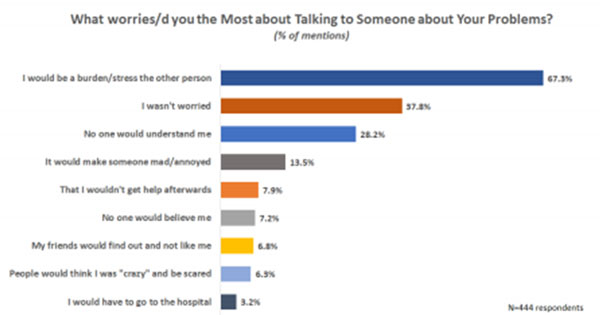
Source: Kalyana Mini Mental Health Survey, April 2021.
Mental illnesses can occur for a variety of reasons which include having a genetic predisposition to a certain illness, experiencing a traumatic life event, or suffering from some form of physical ailment or even prolonged financial challenges. In fact, our mental health and our physical health are extremely interlinked, and those suffering with mental illnesses have been clinically proven to have a higher chance of developing physical illnesses such as gastrointestinal issues, cardiovascular disease and strokes.
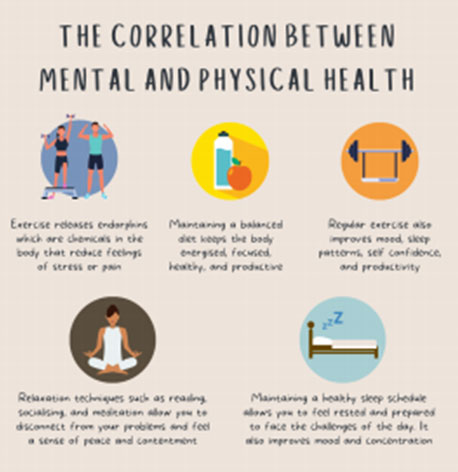
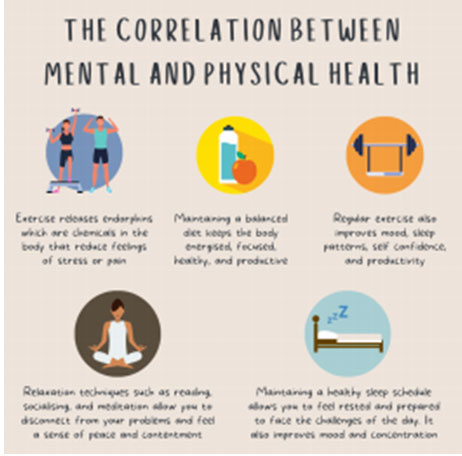
Source: Ryding2health Blog, November 2020
The connection between physical and mental health is an area in which there is limited awareness across the broader population. There needs to be more education around this subject along with the causes of mental illness, possible consequences of poor mental health and most importantly, coping mechanisms to look after our mental health in a way that is best suited for each of us.
We must all remember that mental illness or mental ill health is something that can affect all people regardless of who they are, and that mental health care therefore needs to be prioritised and handled in the same manner as any other aspect of our well-being.
At Kalyana, we believe that with increased awareness and access to impactful and meaningful resources, anyone struggling with their mental health can receive the care and support they need on their journey towards mental wellness.
Kalyana ~ Helping Hands: Healthy Minds
Kalyana is a passionate collective dedicated to supporting the transformation of the mental health landscape through education, advocacy, collaboration, and community building. Kalyana was initiated by a group of more than 40 professionals from diverse backgrounds, all with a passion and commitment to enhance mental well-being in Sri Lanka.
Contact information:
www. kalyanasl.org
www.instagram.com/kalyanaslorg/
www.facebook.com/kalyanaslorg
kalyanasrilanka@gmail.com
Leave Comments